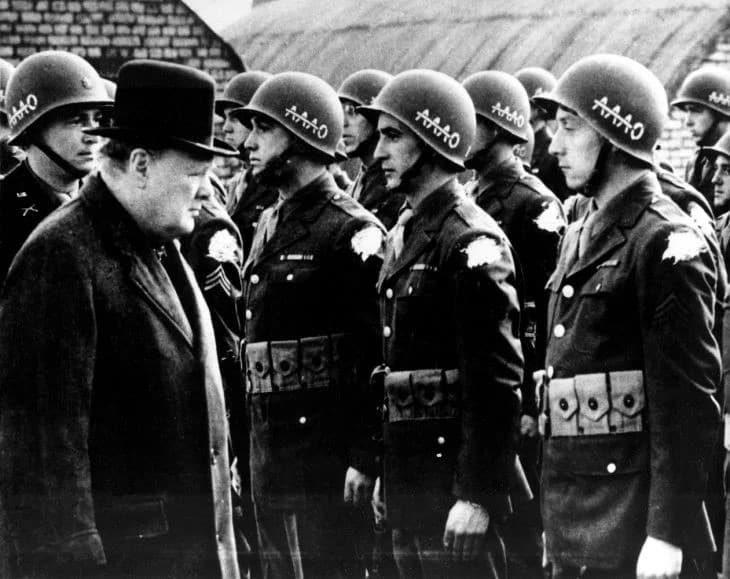Dying Hard
Dying Hard
It’s here. The book on my father’s infantry unit in World War II. He was a Private First Class. Usually carried an M1, sometimes a BAR.
It’s called: Dying Hard: Company B, 39th Infantry Regiment, 9th US Infantry Division in WWII. Maybe I just should have called it “Scrappers”. That’s what General George Patton said the country needed to win the war — soldiers who would fight. And this unit would fight at the drop of a hat. Even Winston Churchill knew about these guys.
Like in 1941 when Company B got into a brawl with Company A. But that was nothing compared to the next year. It was at this dive-bar, watering hole called The Town Pump, in Fayetteville, North Carolina. Lindsey Nelson from Tennessee, who later became a famous baseball and football announcer, was there that night and saw hundreds of guys duking it out. Lindsey will tell you all about it.
And the next year in Sicily, Company B’s Joe Gravino and Timber Ridgeway went one on one behind the tents that was one for the books. In fact statements about this bare knuckles brawl are still in Joe’s personnel file at the National Archives. But you don’t have to go there to read about it; it’s all in the book.
They were called the Anything, Anytime, Anywhere, Bar Nothing (AAAO) 39th Infantry Regiment. Down on the line, junior officers add their own interpretation to the motto – that they’d kick the ass of, “Anybody, anyplace, any time, bar none.” And they did.
And that’s exactly where you will be — down on the line, in Company B.
You’ll laugh; you’ll cry; you’ll cheer. You’ll find out why your father, grandfather, or great-grandfather never talked about the war. 170 soldiers in one American Army infantry company that fought in North Africa, Sicily, Normandy, Hürtgen Forest, Battle of the Bulge, and ran across the Remagen bridge under enemy fire. That last year: 26 Silver Stars, 453 Purple Hearts. “Anything, anytime, anywhere, bar nothing,” AAAO on their helmets. No quit in their hearts.
The human side of war; how they ate, dug foxholes, “appropriated” property, scrounged liquor, goldbricked, kept warm and dozens more anecdotes. How they talked; what music they listened to; what they called the enemy (spoiler alert: they weren’t worried what they said.)
Most are young – anyone who shaves is considered old; and every old guy is called “Pop.” Big city, country, hillbilly. Immigrants; first generation. Black, White, Mexican, Chinese, Filipino, Korean, Lakota, Quechan; but when you are fighting together to stay alive, nobody gives a crap where you were born or what color you are.
The 39th Infantry Regiment, one of Patton’s favorite units, is credited with fighting in the following eight campaigns during the war:
Algeria-French Morocco: (8 November 1942 – 11 November 1942)
Tunisia: (17 November 1942 – 13 May 1943)
Sicily: (9 July 1943 – 17 August 1943)
Normandy: (6 June 1944 – 24 July 1944)
Northern France: (25 July 1944 – 14 September 1944)
Rhineland: (15 September 1944 – 21 March 1945)
Ardennes-Alsace: (16 December 1944 – 25 January 1945)
Central Europe: (22 March 1945 – 11 May 1945)
And you’re going to be there for every one. So rise and shine, grab your helmet and follow us. And make sure your M1 Rifle is loaded because we’re all going back to the line.
Dozens of photos, many never published before; ten maps. In fact, it will teach you how to read a military map, how to maneuver an infantry platoon, how to dig a foxhole, and what you need to go out on patrol. Often written in present tense, using slang they used, because that’s how you’ll talk when you’re with Mac, Hawk, Kenny, Willie, Noodles, Timber, Doc, Vito, Candy, Greek, Buster, Bulldog, Porky and Russian.
So what’s your nickname? Welcome to Company B. We’re glad you’re here.
